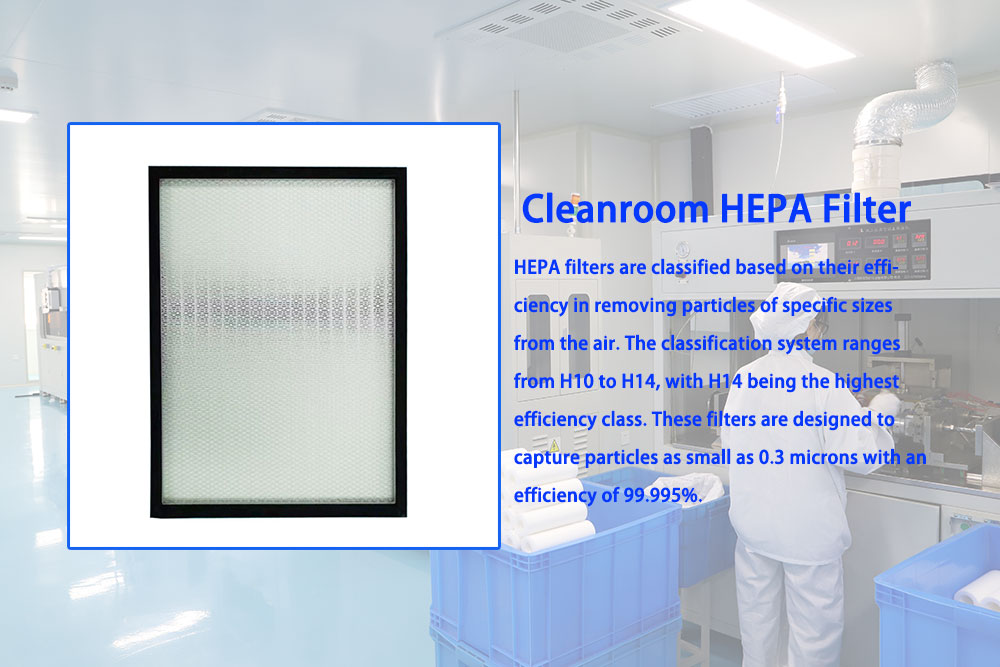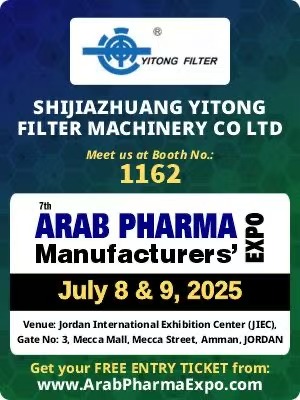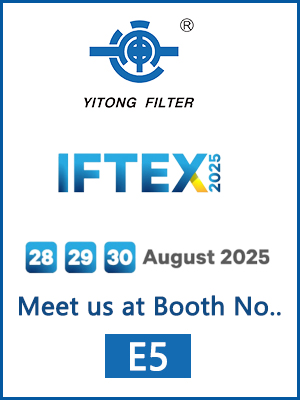 February 29, 2024
February 29, 2024
Cleanrooms are critical environments in various industries such as pharmaceuticals, electronics, and biotechnology, where maintaining high levels of air cleanliness is imperative. HEPA (High Efficiency Particulate Air) filters play a vital role in ensuring cleanroom integrity by trapping airborne particles. Among the various classes of HEPA filters, H14 stands out for its exceptional efficiency. However, determining the most suitable HEPA filter for a cleanroom involves considering several factors beyond just its class designation.

Understanding Cleanroom HEPA Filters:
HEPA filters are classified based on their efficiency in removing particles of specific sizes from the air. The classification system ranges from H10 to H14, with H14 being the highest efficiency class. These filters are designed to capture particles as small as 0.3 microns with an efficiency of 99.995%.
Factors to Consider:
1. Cleanroom Classification: Cleanrooms are categorized based on the maximum allowable number of particles per cubic meter at a specified particle size. The required HEPA filter efficiency depends on the cleanliness class of the cleanroom. For instance, ISO Class 4 cleanrooms necessitate higher efficiency filters compared to ISO Class 8 cleanrooms.
2. Airflow Requirements: The airflow rate and pressure drop across the filter are critical considerations. Higher efficiency filters often result in increased pressure drop, which can affect the airflow dynamics within the cleanroom. Selecting the appropriate filter with the right balance between efficiency and pressure drop is crucial.
3. Filter Design and Construction: Apart from efficiency, factors such as filter media, frame material, sealing mechanisms, and gasket materials also influence the performance of HEPA filters in cleanrooms. Filters with robust construction and leak-free sealing mechanisms are preferred to prevent bypass contamination.
4. Regulatory Compliance: Compliance with regulatory standards such as ISO 14644 and cGMP (current Good Manufacturing Practice) is essential. HEPA filters used in cleanrooms must meet stringent requirements for performance, integrity testing, and documentation.
Is H14 Class the Best?
While H14 HEPA filters offer the highest efficiency among standard HEPA filter classes, whether they are the best choice for a cleanroom depends on the specific requirements of the facility. In some applications where absolute cleanliness is paramount, such as semiconductor manufacturing or sterile pharmaceutical production, H14 filters may be necessary. However, for less critical environments or applications with lower cleanliness requirements, lower efficiency filters such as H13 or even H12 may suffice, offering cost savings without compromising performance.
Conclusion:
Selecting the most suitable HEPA filter for cleanroom applications involves a comprehensive assessment of various factors including cleanroom classification, airflow requirements, filter design, and regulatory compliance. While H14 class filters offer exceptional efficiency, their suitability depends on the specific needs of the cleanroom and the industry standards. Consulting with experienced cleanroom engineers and adhering to regulatory guidelines are crucial steps in ensuring optimal air quality and contamination control in cleanroom environments.

